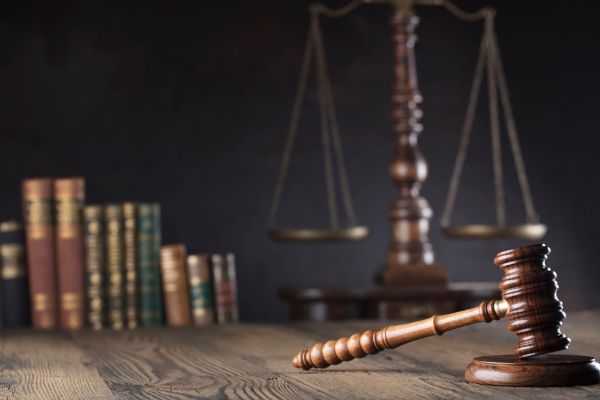India is the World’s Most populous Country in the World n with 138 crore people. The socio-cultural diversity is unique in its way. Article 25, Of the Indian Constitution guarantees freedom of conscience and the free profession, practice and propagation of religion to all citizens with reasonable restrictions.
Every Religion has its own ideology and particles because of which there are chances that there can be a difference of opinion among the people. Blasphemy is an act of Insulting or showing contempt or lack of reverence for any religious deity, sacred symbol or object or towards something that is considered to be sacred.
Religious tolerance has been a Burning Topic in today’s Era. Even Though India is a secular country, Blasphemy is punishable Under IPC under section 295A. Even though the foundation of religion is to maintain peace and harmony, there are instances that a person with a different religious outlook has hurt the feelings of another religious sect. What might be right in one religion may not be acceptable in another.
Blasphemy means, Irreverence towards God, Religion, a sacred Icon or something else considered Sacred. For Instance, if a person makes an apparently derogatory remark about diety and has intentionally outraged the religious sect such a person is said to have committed blasphemy. Article 19 (1) (a) of the Indian constitution provides freedom of speech and expression to all it’s citizens. Blasphemy has been a controversial topic as it curtails one’s right to free speech and experience.
The Act of Blasphemy is criminalized by section 295 A of the Indian penal code 1860. It conflicts with the right to freedom of speech and expression, thus Questioning the constitutional validity of Section 295A.
Provisions Under The Indian Constitution
Article 19 (1) (a) – Freedom Of Speech And Expression
Article 19 of the Indian Constitution provides freedom of Speech which is the right to express one’s opinion freely without any fear through oral, written, electronic broadcasting or press. Freedom of expression included freedom of the press. It covers blogs and websites too.
However, Reasonable restrictions may be imposed in the Interests Of:
The sovereignty and Integrity of India,
The security of the State,
Friendly relations with foreign States,
Public order,
Decency or morality
In relation to contempt of court, defamation or incitement to an offence.
Article 25- Freedom of conscience and free profession, practice and propagation of religion
Provisions regarding blasphemy laws
Section 285A of IPC
Section 285A of the IPC penalizes insulting the religion or religious beliefs of any class of citizens if such insult is offered with the deliberate and malicious intention of outraging the religious feelings of that class.
It is a cognizant offence, which means that the police and authorities to arrest the accused person without the need for a judicially sanctioned warrant. This section does not criminalize every act which insults or attempts to insult religious sentiments. It only criminalizes those acts which are intentional as well as malicious in nature.
It reads as follows.
Deliberate and malicious acts intended to outrage the religious feelings of any class by Insulting it’s religious feelings of any class of citizens of India, by words either spoken or written, or by signs or by visible representations or otherwise, insults, or attempts to insult the religion or the religious beliefs of that class, shall be published with imprisonment of either description for a term which may extend to three years, or with fine, or with both,
Ingredients of Section 295 A
The accused must be insulted or attempt to Insult the religion or religious beliefs of any class of citizens of India.
The said insult must be with a deliberate and malicious intention of outraging the religious feelings of the said class of citizens
The said insult must be by words, either spoken or written, by signs or by visible representations or otherwise
The offence under Section 285A is Cognizable and a non-bailable and non-compoundable offence.
The police have the power to arrest a person charged under Section 295- A without a warrant.
Section 153A of IPC
The purpose of Section 153 A is to punish persons who indulge in wanton vilification or attacks upon the religion, race and place of birth, residence language etc of any particular group or class or upon the founders and prophets of a religion.
The jurisdiction of this Section is widened so as to make the promotion of disharmony enmity or feelings of hatred of ill- will between different religions races, languages, regional groups, castes or communities punishable. Offence of moral turpitude is also covered in this section.
The offence is a cognizable offence and this punishment for the same may extend to three years or with a fine or with both. However, the punishment for the offence committed in a place of worship is enchanced up to five years and a fine.
Ingredients of. Section 153A
(i)The Act of Promoting enmity between different groups on grounds of religion, race, place of birth, residence, language, caste, community or any other group.
(ii) Acts prejudicial to the maintenance of harmony between different groups or castes or communities, if the Acts disturb Public tranquillity.
(iii) Acts causing fear or alarm or a feeling of insecurity among members of any religious, racial, language or regional group or caste or community by use of criminal force or violence against them.
Section 295 of IPC
Section 295 of the I.P.C makes destruction, damage or defilement of a place of worship or an object held sacred, with intent to insult the religion of a class of persons, Punishable with imprisonment which may extend to two years or with fine or with both. This section has been enacted to compel people to respect the religious susceptibilities of persons of different religious persuasion or creeds.
Ingredients of Section 295
(i)The Accused must do such an act with the intention of Insulting the religion of any person or with the knowledge that any class of person is likely to consider such destruction, damage or defilement as in insult to their religion.
(ii) The Accused must destroy, damage, or defile any place of worship or any object which is held as sacred by any class of persons.
Section 296 of IPC
If a person Intentionally causes disturbance to any lawful religious assembly and ceremonies thereof, he shall be punishable under this section and he can be imprisoned for one year fined or both.
Section 297 of IPC
If a person Intentionally trespasses any burial place knowing that this act of his may hurt the religious sentiments of any class of citizens is punishable under this section. This provision is said to protect the religious rights of even dead persons.
Punishment under this section is imprisonment for up to one year or a fine or both.
Section 298 of IPC
Offense under this section is compoundable, non cognizable and non-bailable. Any person, who intentionally utters any words, makes any sound or sign, visible or audible, as the case may be, to the aggrieved, as to hurt the religious feelings of the person, may be published under this section.
Section 153B and IPC
Section 153B of the IPC safeguards the interests of “ classes of persons “ and above all national integration.
Section 154 of IPC
Section 154 of the Indian Penal Code prohibits the incitement of hatred in the name of religion but this section does not protect any religion rather it protects the right of an individual to practice his or her religion.
Section 95 of CrPC
Power to declare certain publications forfeited and to issue search warrants for the same Where-
- Any newspaper, or book, or
- Any document, wherever printed, appears to the State Government to contain any matter the publication of which is punishable under section 124A or section 153A or section 292A or section 293 or section 295A of the Indian Penal Code (45 of 1860), the State Government may, by notifications, stating the grounds of its opinion, declare every copy of the issues of the newspaper containing such matter, and every copy of such a book or other issue of the newspaper containing such matter, and thereupon any police officer may seize the same wherever found in India and Magistrate may be warranted authorize any police officer not below the rank of sub-inspector to enter upon and search for the same in any premises where any copy of such issues or any such book or other documents may be or may be reasonably suspected to be.
Case laws
Ramjilal Modi V. State of Uttar Pradesh,1957 1957 AIR 620, 1957 SCR 860
In this case, a five-judge bench of the Supreme Court upheld this constitutionally of Section 295A of IPC, Here the petitioner had filed a suit under Article 32, stating that his right to freedom of speech and expression under Article 19 is curtailed because of Section 295 A of IPC and that this provision is ultra vires.
But the Supreme Court held that Section 295A was constitutionally valid since, in accordance with Article 19. Of the constitution, it was a ‘ reasonable restriction’, upon the freedom of speech, in the interest of public order’.
Herein the petitioner had published a cartoon and an article which was derogatory to the Muslim community and it had posed a potential threat to disharmonize the public order. Thus, the Court had convicted him under 295A and Section 153A of IPC.
Section 153A is regarding the promotion of enmity between different groups of people such as people from different race, religion, caste etc. Sec. 295A and 153A are used complementarily. The court held that section 295A did not cover all forms of religious insult, but only intensional insults.
And it was the “calculated tendency “ of intentional insults led to public disorder. Therefore the section was constitutional. The court held that the section only punishes certain activities with malicious intent which hurt the religious sentiments of a particular class and the calculated tendency of this must to be disrupt public order.
Superintendent, Central Prison, Fatehgrah v. Ram Manohar Lohia,1960, 1960 AIR633,1960, SCR (2) 821
Within Three years From the judgement of Ramjilal Modi’s case, the Court departed from its stand. It held that there must be a proximate link between speech and public disorder and not a ‘far–fetched ‘ or fanciful connection’.
It laid down the test in which the speech prohibited must have a link with disruption of public order and such disruption must not be remote. In this case, the appellant was prosecuted for delivering speeches which provoked other farmers into not paying enhanced taxes to the government. The Court held that there has to be a link between what is said and the intent to cause disruption.
Sri. Baragur Ramachandrappa v. State of Karnataka, 2007
This Case proved that the test laid down by the Ram Manohar Lohia Judgement has lost its importance over the years. The verdict given in this case is in stark contrast with the one given in the Lohia case.
In the former, the supreme Court held that no individual has the right to hurt the sentiments of others in the process of exercise of their right to freedom of speech and expression. It has to be taken into consideration that India is a country with diverse languages, cultures, rituals and religions.
Using the aforementioned rationale, the Supreme Court prohibited anecdotes of the life of Basaveshwara. By this, we can determine that the sole purpose of section 295A is to keep the peace between all religious sects and to eschew any harm to the sentiments of the public.
In 2011, the Supreme Court held that only Speech that amounted to ‘ incitement to imminent lawless action ‘ could be punished.
Sherya Singhal v. Union Of India,2015
In this case, The Supreme Court distinguished between ‘advocacy’ and ‘incitement’ and held that laws restricting free speech would have to be narrowly curated so as to make it possible that only cases concerning the latter kind of speech are criminalized. It also held that only “incitement” to violence could be prohibited under the public order ground and even advocacy (of revolution, etc) was permitted.
Mahendra Singh Dhoni v. Yerraguntla Shyasundar ,2017
In this case, a picture of the Cricketer Mahendra Singh Dhoni was displayed as Lord Vishnu and was circulated in a magazine with the words diver force of Big Deals. The Prosecution argued that the picture was insulting the religious sentiments of the lord, Vishnu.
The Court held that Section 295A does not criminalize every act which insults religious sentiments, but those acts which are said or written with the malicious intention of hurting the religious feelings of that class.
Conclusion
The Criminal law is based upon the maximum Actus Non-Facit Renu Nisi Mens Sit Rea Which Means an act can only be considered as a crime if there is guilty intent. Unlike all other criminal offences in sacrilege, it is difficult to determine if the remark made by a person was intentional or otherwise, due to lack of evidence establishing the intent. In fifty–plus Years since the decision in the Ramji Lal Modi Case, The Supreme Court has consistently undermined and disregarded that there is no requirement of proximity between speech and order.
Author: This article is written by Rehan Vaz, a 4th Year LLB student at St. Rock’s Degree College of Law.







